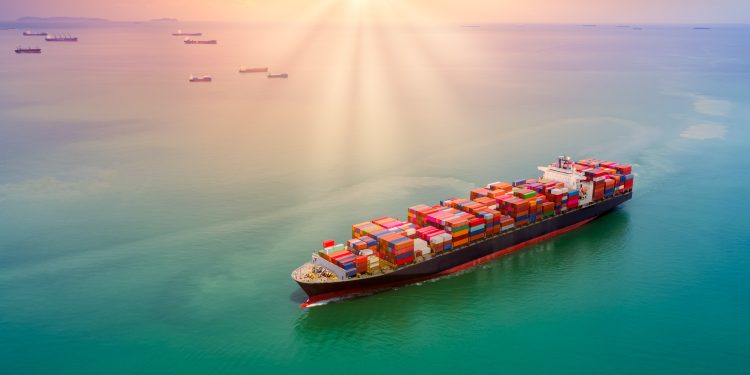The Danish Maritime Authority and Mærsk Mc-Kinney Møller Center for Zero Carbon Shipping signed a Knowledge Partnership Agreement as a formal recognition of their joint working on the decarbonization of shipping.
As informed, the partnership confirms the existing close relationship and strong collaboration between the two organizations who co-lead the Zero Emission Shipping Mission under Mission Innovation along with the Governments of the US and Norway and the Global Maritime Forum.
[smlsubform prepend=”GET THE SAFETY4SEA IN YOUR INBOX!” showname=false emailtxt=”” emailholder=”Enter your email address” showsubmit=true submittxt=”Submit” jsthanks=false thankyou=”Thank you for subscribing to our mailing list”]
As part of this effort, the two partners have committed to extensive knowledge sharing as they work to accelerate the development and implementation of the future fuels and solutions needed to decarbonize shipping. Close collaboration between public sector and industry is essential to succeed with this systemic change and as a leading shipping nation, Denmark and the Danish Maritime Authority have a long history of actively contributing to the long-term development of the maritime industry.
The Danish Maritime Authority has a clear ambition of creating quality shipping where growth and safety go hand in hand. This approach is critical to ensure a safe and just transition towards a decarbonized global maritime industry
…Bo Cerup-Simonsen CEO, Mærsk Mc-Kinney Møller Center for Zero Carbon Shipping, said.
We need standards, policies, and regulation to mature in the same pace as the technology develops and close collaboration between governments and industry is critical to achieve this. We know the Danish Maritime Authority well and appreciate them as our close co-leaders of this global transition. We look very much forward to our continued collaboration
…he concluded.
New fuel types and technologies within decarbonization call for new legislation, and the Danish Maritime Authority will contribute to push for international regulation that creates incentives for the production of renewable fuels and provides a level playing field for the industry
…Director General, Andreas Nordseth, Danish Maritime Authority, said.
This effort can only succeed through successful public-private partnerships that build bridges between industry developments and regulation, and I am therefore pleased that we with this Partnership Agreement build further to our existing, close collaboration with the Center to enable the transition to a decarbonized global shipping
…Andreas Nordseth concluded.
In addition, with 100.000 ships consuming around m300Tons fossil fuel p.a. global shipping accounts for around 3% of global carbon emissions, a share that is likely to increase due to the foreseen growth in global trade in the coming decades.
For this reason, achieving the long-term target of decarbonization requires new fuel types and a systemic change within the industry. Shipping is a globally regulated industry, which provides an opportunity to secure broad-based industry adoption of new technology and fuels.
To accelerate the development of viable technologies a coordinated effort within applied research and demonstration is needed across the entire supply chain. Industry leaders play a critical role in ensuring that laboratory research is successfully matured to scalable solutions matching the needs of industry. At the same time, new legislation will be required to enable the transition towards decarbonization.
Recently, A.P. Moller Capital, a fund management company focusing on investment, announced its decision to join as a Mission Ambassador the Mærsk McKinney Møller Center for Zero Carbon Shipping.
In the same direction, Hapag-Lloyd, a German international shipping and container transportation company, and Mærsk Mc-Kinney Møller Center also formalized their collaboration by signing a Partnership Agreement on April 12th.
Lastly, Chilean Ministries of Energy, Transport and Telecommunications, and Foreign Affairs, together with the Mærsk Mc-Kinney Møller Center for Zero Carbon Shipping launched a joint project in order to establish green shipping corridors in Chile.






























































